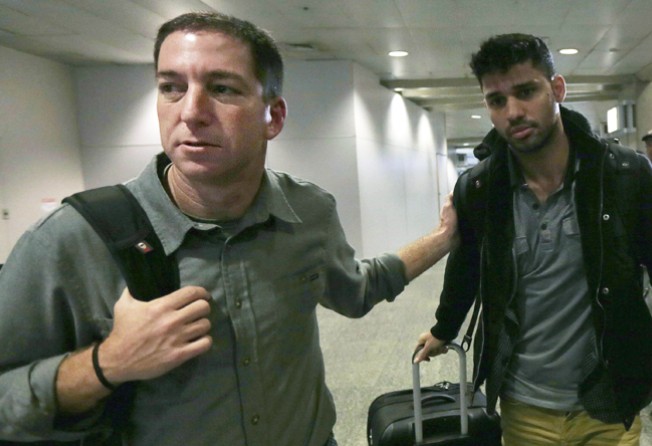Lawyers challenge detention of Greenwald’s partner in London's High Court
British intelligence officials claim that stories based on stolen documents have damaged national security and aided global terrorism.

In London’s High Court on Wednesday, lawyers challenged the legality of the temporary detention of David Michael Miranda, the partner of Glenn Greenwald, a journalist who has been writing about the secret documents taken by a former analyst for the US National Security Agency, Edward Snowden.
Miranda, 28, was held at Heathrow Airport for nine hours in August while on his way from Berlin to Brazil, and his computer, telephone and memory sticks were confiscated. They contained around 58,000 encrypted, secret files from the Snowden archive, the British government said.
British intelligence officials are still trying to decrypt all of the files to see exactly what Miranda was carrying, but they have argued that the stolen documents and the stories written based on them have damaged national security and aided global terrorism.
Miranda had been traveling home to Brazil, where he lives with Greenwald, after visiting Germany, where he met with Laura Poitras, a US filmmaker who has worked with Snowden and Greenwald on the NSA articles. Miranda has said he did not know the contents of the files he was carrying. After his return to Brazil, he filed suit, asking for a judicial review of his detention and the return of his property.
At a preliminary hearing in court, his lawyers challenged the legality of using counterterrorism powers at ports of entry in this case, arguing that the law was misused and that Miranda’s fundamental rights were violated. Matthew Ryder, Miranda’s lawyer, argued that the case hinged on Schedule 7 of the Terrorism Act 2000, which gives officers the power to stop, question and detain people at ports even if wrongdoing is not suspected.
“If the court finds that such a power was used proportionally in seizing journalistic material in this way, we ask the court then to consider if Schedule 7 is compatible with fundamental rights - in particular, the right to freedom of expression,” Ryder stated in court, according to news agencies. “This case illustrates vividly why it is not compatible.”
But a lawyer for Britain’s Home Office, Steven Kovats, said Miranda’s detention was justified because publication of the Snowden material could aid terrorism and put lives at risk.
Oliver Robbins, a deputy national security adviser, said in evidence submitted on Wednesday that British security services had a duty to determine whether the materials Miranda was carrying were a threat, Reuters reported.
The hearing is expected to last two days.